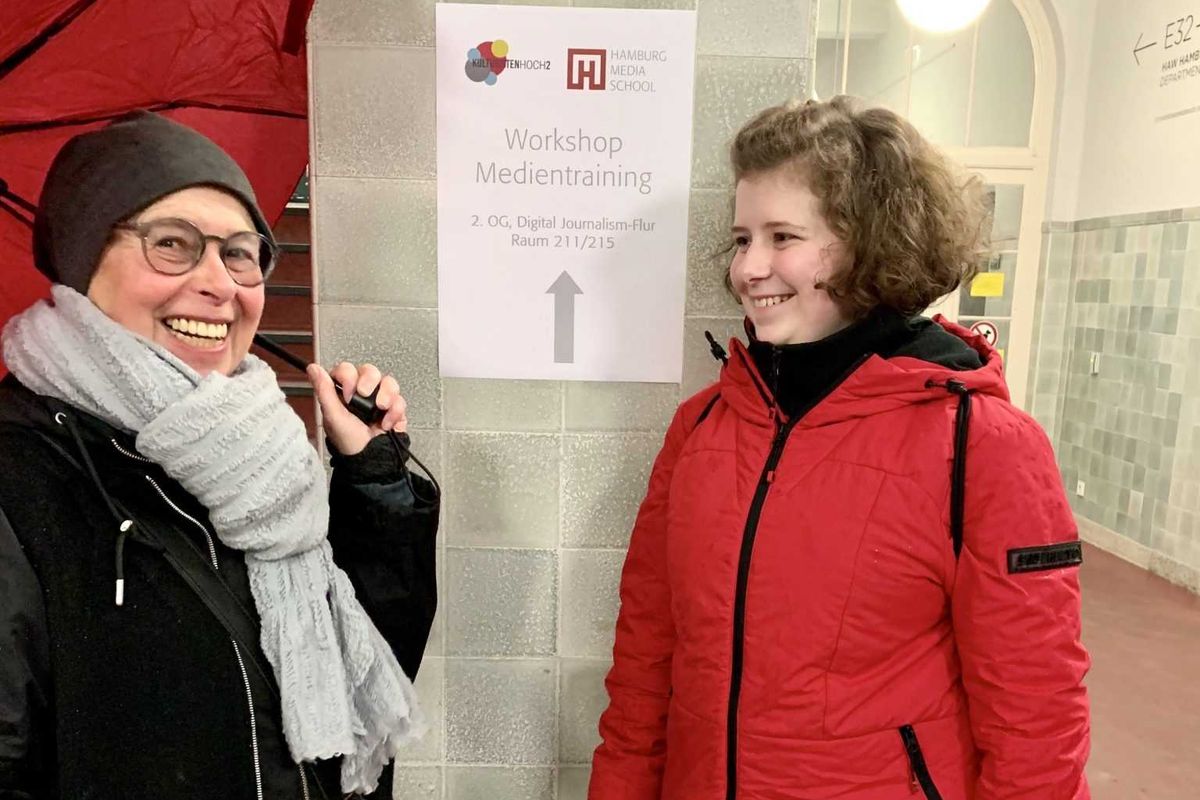Is tipping culture out of control? A former server explains why she won't tip at Starbucks.
Is she right?

Meghan Elinor chimes in on the Starbucks tipping debate.
Tipping culture is rapidly changing in America, so understandably a lot of people aren’t sure what to do when they buy a coffee and the debit card reader asks for a tip. It used to be that people only tipped bartenders, drivers, servers and hairdressers.
Now people are being asked to tip just about any time they encounter a point-of-sale system. There is a big difference between tipping a server who lugged around hot plates of food for an hour-long meal and someone who simply handed you an ice cream cone.
"We're living in an era of inflation, but on top of that, we've got tipping everywhere—tipflation. I take it a step further and call it a tipping invasion. Because that's really what I think it is," etiquette expert Thomas Farley (aka Mister Manners) told CBS 8.
A lot of people are tipping just because they are uncomfortable saying no to the person hovering over them at the counter.
“What is happening is what I like to call the ‘guilt tip.' So we know about a guilt trip. This is the guilt tip. Where because you know you've got to flip that screen around ultimately at the person waiting and who's going to see how much you tipped," Farley added. "Not to mention the three people standing in line behind you are going to see what you tipped."
Things have really come to a head now that Starbucks has gone from a place with a tip jar to adding a gratuity option to its point-of-sale system.
Fitness influencer Meghan Elinor, a former server, went viral on TikTok for posting a video where she emphatically said we shouldn’t be tipping for a cup of coffee. The video has racked up over 1.3 million views and fanned the flames of the debate about tipping culture.
WARNING: Video contains strong language.
“No ma’am, we are not tipping at the Starbucks drive-thru,” Elinor says in the video. “That s*** is hard—being a server, being a busser, being a runner—like, that s*** is real difficult, so yes, I will 100% tip you 20, 30, 40 percent every single day of the week,” she claims. “But Starbucks workers, listen, I love y’all, I do, but I’m not going to f***ing tip you when all you’re doing is taking a cup and handing it to somebody outside the window.”
Elinor’s aggressive tipping refusal struck some people on TikTok as being anti-worker.
"U do u but imma keep tipping them bc i know they deal with some of the WORST customers and they deserve their tips," Caprist wrote.
"You tip a bartender to make a drink what’s the difference with coffee?" Jessica Downie added.
"It’s so cute that you think all we do is pick up a cup and hand it to you," Laura wrote.
Many current and former Starbucks workers added that the tip isn’t just for the person who hands you the coffee. "You don’t have to tip but to inform you the tip goes out to everyone that worked that day not solely the person at the window," Lyssa wrote.
The tip request is also a double-edged sword because some people tip because they believe the staff is underpaid. But the tip jar also lets management off the hook for lower wages. "I used to work at Starbucks, all the tips are added up then divided among all the workers, they use the tips so they can pay the workers less," user3391398860792 wrote.
The tipping debate is difficult, especially for well-meaning people who want those with service jobs to be well taken care of but also don’t want to be overcharged for a cup of coffee.
In the end, people should make economic decisions without feeling coerced, so the decision to tip or not should be a simple one. In situations where tips aren’t essential to the workers, such as getting a cup of coffee, give them one if you feel it’s deserved but never because you feel guilty.
- Grocery stores, please let us tip your employees! ›
- Customers hate tipping before they're served and it's bad for business, study shows ›
- 14 reasons why you should tip your server more than 20% for ... ›
- Server gets $10 tip from party of 21 so TikTok users step in - Upworthy ›
- Woman shamed by credit card reader - Upworthy ›
- Woman shares list of places she won't be tipping in 2024 ›
- Tourist visits an American Starbucks for the first time—and accidentally asks his barista out - Upworthy ›
- Admitted 'big tipper' makes excellent case for why tipping culture has gone too far - Upworthy ›
- Bartender shares her $9.28 paycheck to remind everyone why tipping culture is broken - Upworthy ›
- Woman's nifty chart shows exactly why your Starbucks latte tastes off in certain sizes - Upworthy ›



 A UPS truck with package deliveries.Image via Wikipedia
A UPS truck with package deliveries.Image via Wikipedia
 Cher was the biggest phenomenon on the planet for the better part of the '70s and '80s.Casblanca Records/
Cher was the biggest phenomenon on the planet for the better part of the '70s and '80s.Casblanca Records/

 A high school volunteer with her senior "tandem."
A high school volunteer with her senior "tandem."  KH2 makes leaving the house more accessible to senior citizens.
KH2 makes leaving the house more accessible to senior citizens.  Many "culture buddies" stay in contact after the program ends.
Many "culture buddies" stay in contact after the program ends.  KH2 provides students with excellent life skills and lasting connections.
KH2 provides students with excellent life skills and lasting connections. 
 Parents posing with their young kids on a basketball court. via
Parents posing with their young kids on a basketball court. via